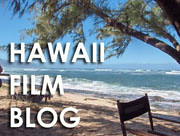Indigenous Pacific Storytelling
Indigenous Hawaiian and Pacific Islander writers, filmmakers, and other storytellers (and their friends and sympathizers) may want to check out the free public talks at UH this week featuring Maori novelist Patricia Grace, author of "Dogside Story" and "Tu: A Novel."
According to an article in today's Honolulu Advertiser, Grace's work is part of a growing body of indigenous Pacific literature characterized by another Maori writer, Albert Wendt, as possessing common traits such as portraying the community rather than the individual as protagonist, and exhibiting love for the sea and the land, the "sociological scars of colonization," and "a distinct sense of loss that is ingrained in indigenous cultures across the Pacific, because of their shared experiences with Western domination."
While it is important in the socio-cultural evolution of post-colonial peoples to write their own stories that share these common themes, Grace notes that new indigenous writers must continually emerge to voice their own individual experiences and concerns: "unless you have a whole range of people writing, the culture isn't shown in its fullness....Writing can break down stereotypes, but there's always a danger of new stereotypes emerging."
Learn more about this important topic at the following two FREE public talks:
Wed, Feb 8, 2006, 7pm
An evening reading with Patricia Grace
UH Mānoa Campus
Art Auditorium
Thurs, Feb 9, 2006, 3-4:30pm
"Indigenizing the Novel in Aotearoa: the Role of Culture and Identity" - Panel featuring Patricia Grace
UH Mānoa Campus
Kuykendall Auditorium
>> Creating a new Pacific literature [Hnl Advertiser, 2/7/06]
RELATED POSTS:
>> Hawaii Looks to New Zealand
>> Hawaii Film Panorama at LVHIFF
>> Hawaii vs. Hawaiian
>> Culture Clash
>> "I Have a Dream..."
According to an article in today's Honolulu Advertiser, Grace's work is part of a growing body of indigenous Pacific literature characterized by another Maori writer, Albert Wendt, as possessing common traits such as portraying the community rather than the individual as protagonist, and exhibiting love for the sea and the land, the "sociological scars of colonization," and "a distinct sense of loss that is ingrained in indigenous cultures across the Pacific, because of their shared experiences with Western domination."
While it is important in the socio-cultural evolution of post-colonial peoples to write their own stories that share these common themes, Grace notes that new indigenous writers must continually emerge to voice their own individual experiences and concerns: "unless you have a whole range of people writing, the culture isn't shown in its fullness....Writing can break down stereotypes, but there's always a danger of new stereotypes emerging."
Learn more about this important topic at the following two FREE public talks:
Wed, Feb 8, 2006, 7pm
An evening reading with Patricia Grace
UH Mānoa Campus
Art Auditorium
Thurs, Feb 9, 2006, 3-4:30pm
"Indigenizing the Novel in Aotearoa: the Role of Culture and Identity" - Panel featuring Patricia Grace
UH Mānoa Campus
Kuykendall Auditorium
>> Creating a new Pacific literature [Hnl Advertiser, 2/7/06]
RELATED POSTS:
>> Hawaii Looks to New Zealand
>> Hawaii Film Panorama at LVHIFF
>> Hawaii vs. Hawaiian
>> Culture Clash
>> "I Have a Dream..."








